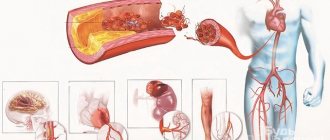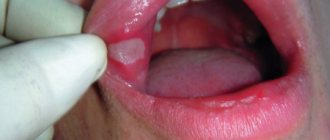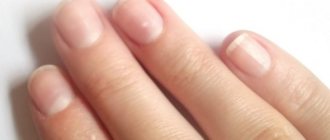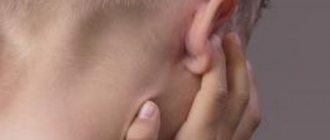Insomnia negatively affects our ability to work and our mood during the day. A person who does not sleep at night is simply unable to adequately perceive the information and actions of others, and becomes aggressive and irritable. In addition, insomnia can provoke the development of many diseases, including chronic ones. Therefore, it cannot be ignored. Insomnia can and should be treated. But before you start, it is imperative to establish the cause of its occurrence.
Causes and risk factors
The causes of insomnia are extremely diverse:
- negative experiences;
- acute or chronic stress;
- astheno-neurotic conditions;
- psychiatric pathology;
- anxiety and depression;
- taking psychoactive substances;
- alcohol abuse;
- acute and chronic intoxication;
- metabolic diseases;
- changes in hormonal levels;
- diseases of the central nervous system (acute cerebrovascular accident, neoplasms, epilepsy, parkinsonism, hyperkinetic syndromes);
- syndromes that occur during sleep (apnea, motor activity);
- pain syndrome;
- external factors (high noise levels, specific climatic conditions, time zone changes, etc.);
- shift working conditions;
- violation of sleep hygiene.
Causes of insomnia
There are many reasons for insomnia. And conditionally, they can all be divided into internal and external.
Internal reasons
It is very difficult to eliminate the internal causes of insomnia on your own. In this case, sleep disturbance occurs as a result of various psychological disorders and diseases of internal organs.
Psychological disorders include:
- pathologies of the nervous system;
- prolonged depression;
- neurosis.
All these conditions cause an imbalance between the functionality of the inhibition and awakening centers of the brain, as a result of which a person cannot fall asleep for a long time, and when this does happen, he often wakes up, after which he again cannot fall asleep for a long time.
In more severe forms of psychological disorders, a person cannot sleep at all. He wanders around at night and only falls asleep for 1-2 hours in the morning. Naturally, this time is not enough for the body, and after awakening, the symptoms of psychological disorders become even more pronounced - the person becomes aggressive, inadequate, inhibited, etc.
Conditions such as:
- fear;
- anxiety;
- stress;
- anxiety, etc.
Suspicious people have one characteristic - they constantly think and analyze their actions and situations in which they find themselves during the day. Moreover, they do this mainly before bed. Therefore, they cannot sleep for a long time.
Being overexcited contributes to insomnia
Stress threatens everyone without exception. It can be triggered by various factors - change of place of residence, climate change, separation from a loved one, death of a loved one, ruined plans and much more. And the result in all of this is the same - the body’s defenses are reduced and insomnia appears.
This happens due to the fact that any stressful situations lead to a malfunction of the nervous system. As a result of this, the inhibition centers of the brain do not work at the right time, and the glands begin to produce much less sleep hormone and increase the synthesis of adrenaline-like substances, which lead to overexcitation of the nervous system.
As for diseases that can lead to sleep disturbances, these include various neuroinfections and concussions. They also disrupt the functioning of the arousal and inhibition centers of the brain, as a result of which insomnia begins to develop.
Important! The danger of all these conditions is that if you do not pay attention to them in a timely manner, they can lead to the transition of insomnia to a chronic form, after which it becomes almost impossible to cure it without heavy psychotropic drugs.
It should also be noted that various somatic diseases can provoke the appearance of insomnia. Among them are:
- dermatoses;
- angina pectoris;
- hypertrophy;
- arthrosis;
- arthritis;
- hypertension;
- peptic ulcers of the stomach and duodenum, etc.
All these diseases are manifested by a pronounced symptomatic picture - itching, pain, rapid heartbeat, etc. All these conditions cause anxiety in a person and force him to take various drugs, some of which have a negative effect on the nervous system and can cause insomnia (this is usually stated in the drug’s annotation under “side effects”).
In older people, sleep disturbances can trigger nocturnal enuresis. Its development can be triggered by various factors, for example, infections of the urinary system, hyperthyroidism, diabetes mellitus, etc. In this case, a person every time has a fear that he may urinate on himself while sleeping. Therefore, the night for him turns from a rest into a threat, which, naturally, has a bad effect on the functioning of the nervous system and the quality of sleep.
External reasons
There are also many external reasons for the development of insomnia. Among them are:
- a change of scenery;
- poor sleep hygiene;
- poor nutrition;
- noisy environment, etc.
A change of environment is always a slight stress for the body, which can lead to negative consequences in the form of the inability to sleep for several hours. As a rule, this phenomenon is temporary and quickly passes when getting used to a new place (for example, when a person changes his place of residence).
As for poor sleep hygiene, several factors play an important role - the environment around (noisy or quiet), the hardness of the bed, the softness of the pillow, the room temperature and much more. A person may often wake up due to the fact that a noisy company is resting under the window or the early rays of the sun are breaking through his windows.
Nutrition also plays a role and affects a person’s sleep. Eating heavy and fatty foods can cause stomach discomfort and a feeling of heaviness that prevents you from sleeping properly. The same applies to those people who “sit” on various diets and go to bed with a strong feeling of hunger. It causes psychological discomfort, which is also fraught with the onset of temporary insomnia.
In addition, drinking coffee, tea or coffee also negatively affects the functioning of the nervous system. After all, these drinks contain substances that contribute to overstimulation of the central nervous system, which results in sleep problems.
Forms of the disease
There are several forms of insomnia:
- adaptation insomnia;
- psychophysiological insomnia;
- pseudoinsomnia;
- insomnia due to poor sleep hygiene;
- behavioral childhood insomnia;
- insomnia associated with jet lag;
- secondary insomnia.
Adaptation insomnia occurs against the background of a sharp change in the usual environment and lifestyle, which leads to hyperactivation of the nervous system. This violation is relatively short-lived: it lasts no more than 3 months.
The psychophysiological form refers to sleep disorders in which psychological disorders (for example, fear of sleep) are superimposed on physiological insomnia. In this case, the patient prepares himself to fall asleep as soon as possible, experiencing anxiety when this does not happen, thereby aggravating the pathological condition.
With an integrated approach to the diagnosis and correction of insomnia, the prognosis is favorable.
Pseudoinsomnia is a special form of insomnia. The patient complains of a complete lack of sleep, but an objective examination reveals full episodes of night sleep lasting 6.5 hours or more. This condition is associated with a violation of the subjective perception of sleep (only episodes of wakefulness are remembered, the period of direct sleep is amnesic) and fixation on imaginary sensations.
Sleep hygiene disorders involve a change in activity patterns in the period preceding falling asleep (drinking strong tea, coffee, intense physical or mental stress).
Drinking strong coffee at night - poor sleep hygiene
The leading role in behavioral childhood insomnia belongs to the formation of certain sleep-related associations in the child (sickness, reading books, falling asleep together with parents). Attempts to correct the existing stereotype entail active resistance on the part of the child and a decrease in sleep time.
Disruption of internal biorhythms leads to a change in the time when the body “signals” the need for sleep, moving it to an earlier time (the result is an unusually early awakening) or shifting it (making falling asleep at a socially acceptable time impossible).
Secondary insomnia refers to sleep disorders that develop against the background of somatic diseases.
Depending on the duration of insomnia, it can be:
- acute (less than 3 weeks);
- chronic (more than 3 weeks);
- transient (less than 1 week).
Consequences of insomnia
If a person sleeps poorly, the next day he will have poor concentration, absent-mindedness, fatigue, irritability, headache, and bags under the eyes. After 2-3 days, speech impairment, lethargy will be observed, the nervous system will begin to deplete, in some cases the eye begins to twitch, and appetite increases.
The fourth day will provoke the appearance of hallucinations and confusion. The condition is extremely dangerous because a person can “switch off” while performing responsible work or while driving, which poses a mortal danger. Dyssomnia leads to a decrease in immunity, and the risk of chronic pathologies increases.
On the fifth day, the person begins to go bald, almost half of the existing hair falls out, and its growth stops. Hand tremor appears, the nervous, endocrine and cardiovascular systems suffer. In 80% of cases, death will occur on the 6th day without sleep; surviving people will have a long recovery of health. Long-term somatic pathology in the absence of treatment becomes the cause of:
- hyperthyroidism;
- ulcers of the stomach and duodenum;
- essential hypertension;
- diabetes mellitus;
- obesity and metabolic disorders;
- weakening of the body's protective functions;
- hormonal disorders;
- high blood pressure;
- heart disease;
- oncology;
- premature aging;
- sexual dysfunctions;
- shortening life.
The impressive list of pathologies that insomnia can lead to is a serious reason for its treatment, and the sooner it begins, the greater the chance of doing without the use of potent medications.
Symptoms
All symptoms characteristic of insomnia can be grouped into 3 main groups: presomnic, intrasomnic and postsomnic disorders.
Presomnia disorders involve problems falling asleep and are represented by the following symptoms:
- fear of not getting sleep;
- disappearance of the desire to sleep when the patient is in bed;
- the appearance of intrusive thoughts and memories;
- excessive physical activity in an attempt to find a comfortable sleeping position;
- superficial drowsiness, easily interrupted by minimal stimuli (creaking bed, rustling bed linen, etc.);
- prolonged falling asleep (up to 2 hours or more, the norm is 3-10 minutes).
Fear of sleep causes problems falling asleep
Intrasomnic manifestations:
- Frequent awakenings at night, after which it is difficult to fall back asleep;
- superficial, shallow sleep.
According to recent data, more than 20% of the world's population suffers from insomnia of varying degrees of severity. More often, insomnia disorders are observed in women, especially in the premenopausal and menopausal periods.
Post-somnia disorders:
- early awakenings;
- feeling of dissatisfaction, exhaustion after a night's sleep;
- daytime sleepiness.
With insomnia, a person feels exhausted and constantly wants to sleep during the day.
What is insomnia?
Disturbances in sleep and wakefulness are called dyssomnia or insomnia. Signs of insomnia include difficulty falling asleep at night, frequent waking up, shallow sleep, or waking up too early. The condition is characterized by daytime sleepiness, irritability, lack of energy, bad mood, etc. Insomnia can be short-term and last from several days to a month; some people cannot normalize sleep for a long time, which causes serious health problems.
The pathology occurs not only in adults; elderly people and children are also affected. Treatment tactics include folk remedies, special exercises and medications. Drugs are prescribed in advanced cases; generally, they try to use gentle methods, especially for treating children and pensioners.
Diagnostics
To fully diagnose insomnia, a number of studies are necessary:
- assessment of individual chronobiological stereotype (tendency to late or early awakening, duration of sleep necessary for adequate daytime functioning);
- assessment of working conditions [shift work (daily shifts, night shifts), rotational work or frequent flights (moving) with changes in time zones];
- psychological research;
- polysomnographic study, which includes electroencephalographic, electrooculographic and electromyographic studies with subsequent assessment of the results in their entirety;
- assessment of somatic support (concomitant diseases that reduce the quality of life and affect the sleep process).
Polysomnographic study is one of the stages of diagnosing insomnia
70-90% of patients suffering from insomnia have concomitant somatic pathology.
What are the causes of insomnia?
Dyssomnia can develop independently or be a consequence of other conditions. There are quite a few reasons and factors why insomnia occurs; the condition can be caused by:
- psychological stress and depression;
- chronic pain;
- hyperthyroidism;
- heartburn;
- restless legs syndrome;
- menopause and pregnancy;
- certain medications or psychotropic drugs;
- herbs;
- nicotine, alcohol, narcotic substances;
- apnea;
- operations of the chest organs;
- curvature of the nasal septum;
- night work schedule;
- excessive physical exertion and mental work;
- old age;
- uncomfortable pillows, mattresses, beds;
- heart disease and so on.
Based on medical statistics, residents of megacities experience problems to a greater extent; in 15% of cases, the causes of dyssomnia are not identified. The presence of insomnia can be determined by the characteristic symptoms of the condition:
- Difficulty in finding a comfortable position for falling asleep.
- Waking up in the middle of the night, after which it is difficult to fall asleep again.
- Drowsiness and irritability during the day.
- Very early awakening, and lack of “freshness”, as after a full sleep.
Treatment
Treatment of insomnia is aimed primarily at eliminating the underlying disease that provokes it (intense pain, shortness of breath, dizziness, dyspeptic symptoms, etc.).
In addition, treatment is carried out in the following areas:
- pharmacotherapy with sleeping pills and sedatives (short course to avoid addiction);
- the use of synthetic analogues of the hormone melatonin;
- psychotherapeutic effects (relaxation techniques, techniques for limiting stimulation and limiting sleep);
- physiotherapeutic effects;
- correction of sleep patterns, development of positive rituals (especially important for childhood insomnia);
- normalization of sleep hygiene.
Sedative-hypnotics are effective in treating insomnia, but are not intended for long-term use
What helps fight insomnia?
In the treatment of dyssomnia, herbs, special exercises, establishing a regimen, medications, and physical procedures are used, including:
- massage;
- medicinal baths;
- balneotherapy;
- electrosleep;
- magnetic therapy;
- darsonvalization of the head and collar area;
- galvanotherapy;
- electrophoresis with sedatives;
- acupuncture.
Medicines are prescribed depending on the cause and other factors.
Helpful information
In most cases, a person can normalize sleep himself without resorting to the help of doctors or medications.
If the condition is caused by mental disorders, it is difficult to cope with the problem on your own; most likely, you will need to involve a psychotherapist or psychiatrist.
Medications
Taking medications for dyssomnia is prescribed in extreme cases; these can be drugs of different groups; treatment can be carried out by:
- antidepressants (Doxepin);
- antihistamines (Diphenhydramine, Pipolfen, Donormil);
- barbiturates (Phenobarbital, Hexobarbital);
- imidazopyridines (Zolpiden);
- tranquilizers of the benzodiazepine group (Phenazepam, Triazolam);
- cyclopyrrolones (Somnol).
Drugs of these groups are addictive and have many side effects, so they can be prescribed strictly by a doctor. There are more gentle, over-the-counter remedies, but it is recommended to use them the same way, after consultation. The following method is considered effective:
- Novopassita;
- Glycine;
- Corvalola;
- Valocordina;
- Tanakana;
- Ginkgo Beloba;
- Donormila;
- Persena;
- Afobazole;
- Melaxena;
- Tinctures of motherwort, lemon balm, valerian, etc.
It is forbidden to take medications for more than 3 weeks or mix them with alcohol. They should not be used by children, during pregnancy and lactation, in case of breathing problems at night, the presence of certain other diseases, and people who require increased concentration in the morning. Mixing with other drugs is possible only after consultation with your doctor.
Relaxation techniques
A stressful state provokes the release of adrenaline into the blood, and breathing quickens and becomes shallow. By performing the proposed technique, based on proper breathing, you can normalize your heart rate, calm down and relax. Actions are performed in stages:
- The tip of the tongue is placed on the palate near the upper teeth.
- You will need to breathe with your stomach to control this, placing your hands on your chest.
- Now you need to take a deep breath through your nose, slowly counting to 4.
- Next, the breath is held and restored by counting to 7.
- Then inhale through the mouth, counting to 8, leaving the tongue in the same position.
It is recommended to perform this exercise in bed 5-10 times, increasing the number of repetitions daily if necessary.
Falling asleep techniques
You can use different techniques for falling asleep; before performing them, you need to ventilate the room, wear breathable clothing, and remove all sources of light and sound.
- The first exercise is to concentrate on breathing, the breaths should be slow and deep, the person needs to count their number and not think about anything else. Instead of breathing, you can count visualized numbers, animals, or something else.
- The next technique is to listen to soft music or nature sounds. Some people can fall asleep well to the singing of birds, the sound of rain and the sea.
- Yoga and meditation are very helpful in the fight against insomnia. Simply stretching your arms and legs 15 minutes before bed will help your body relax. You need to spread your arms to the sides, reach your legs and stretch them up.
- Gymnastics helps to relax the body; while lying in bed, you can begin to clench and unclench your toes, calves, thighs, stomach, chest muscles, face, fists.
- You can use visualization techniques, imagine something interesting: an ideal house, the sea, a movie, etc.
- Many note the effectiveness of the method in which a person forces himself not to sleep at night.
Folk remedies
To treat insomnia, people use many drugs that can be taken in combination with different components. They are consumed orally, added to baths, massaged, or used for aromatherapy and compresses.
Honey
The beekeeping product is included in many recipes. It can be consumed with mineral water and finely chopped lemon. Amount of ingredients: 1 large spoon of each. The mixture is consumed every morning.
Herbal infusions
A collection of peppermint, motherwort, hop cones and valerian root helps calm the nervous system and relax. For decoction use 10 g. a mixture of equal amounts of ingredients, pour a glass of boiling water and heat in a water bath for 10 minutes. Next, the liquid is filtered, brought to the original volume with boiled water and consumed three times a day, with the last dose before bed.
Peppermint leaves, chamomile, fennel seeds, valerian roots, and cumin are added to the next decoction. Herbs, in the amount of 20 g. pour 500 ml of water and heat in a water bath for 30 minutes. Add water to the decoction to replenish the volume, filter and drink 1 glass 2 times a day.
To prepare this medicine, take 5 grams. thyme, motherwort and calendula. The mixture is poured into 250 ml of hot liquid and placed on low heat for 15 minutes. The resulting liquid is infused for 1 hour, filtered, honey is added and consumed half a glass before going to bed.
Dill
Dill tincture is considered effective in the fight against dyssomnia. To prepare it, use 2 large spoons of fresh, chopped herbs and 2 cups of boiling water. The liquid is infused all night, and the next day is drunk in 4-5 doses. Duration of treatment is 4 days, then rest for 2 days and, if necessary, repeat the course.
Kalina
To prepare the medicine, take 50 grams. crushed viburnum root and 1 liter of water. The liquid is kept for 1 hour, then put on low heat for 30 minutes. The broth is filtered and consumed half a glass each time after meals.
Pumpkin decoction
For the drink you need to grate 250 grams. peeled pumpkin, pour in a liter of liquid and bring to a boil. Then the drink should sit for at least half an hour, after which it should be taken with half a glass 1 hour before going to bed. After 7 days you can drink a whole glass. The course of administration is limited to the growing season of fresh vegetables. Honey can be added to the liquid and given to children from 3 years of age, but not more than 50 g.
Baths
Warm water itself promotes relaxation, the effect will be enhanced if you add a decoction of valerian roots or a mixture of fragrant hay, fir cones, and pine needles to the bath. Cones and needles should be boiled and infused for at least 15 hours. Baths should be taken at least 2 hours after meals, the water temperature should not exceed 40 degrees, the duration of use is 15 minutes. Water should not reach the heart muscle area.
Clay
It is believed that a weekly procedure of compresses with clay is enough to normalize sleep. For one session you need to prepare 10 ml of yarrow tincture, 2/3 cup of white clay and the same amount of water. The components are mixed in an enamel container and applied to the temples and forehead with a napkin. This compress is kept for no more than 20 minutes.
Possible complications and consequences
The consequences of insomnia can be quite serious:
- decreased ability to work, learning ability, deterioration of interpersonal interactions in a team;
- depletion of adaptive resources with subsequent development of somatic diseases;
- exacerbation and worsening of chronic diseases;
- formation of psychosomatic pathologies;
- increased risk of injury due to decreased concentration and drowsiness.
Insomnia has significant social consequences: according to the results of various studies, people suffering from insomnia have a greater (2.5-4.5 times) risk of becoming involved in a traffic accident; the performance of such individuals is reduced by at least half compared to their colleagues.
Classification of insomnia
Depending on the duration of sleep, there are four types of insomnia:
- Transient. The duration of this type of insomnia is about a week. It is usually associated with problems in the emotional sphere of a person. In particular, it can arise due to strong experiences or sudden life changes.
- Short-term. This type of insomnia usually lasts from a week to a month. Symptoms of insomnia begin to actively manifest themselves, so the patient should consult a doctor for advice.
- Chronic. This type of insomnia is diagnosed if sleep problems bother the patient for more than a month. Chronic insomnia is dangerous because it will no longer be enough for a person to simply get a good night’s sleep to restore performance.
- Family. This type of pathology cannot be treated. Usually, sleep problems bother a person for a couple of weeks. The inability to fall asleep and get a good night's sleep can ultimately lead to death.
Depending on the etiology of the disease, it is customary to distinguish primary insomnia, which arose due to personal or unclear reasons, as well as secondary insomnia, which arose due to somatic, psychological and other reasons. Based on severity, insomnia is classified into mild, moderate and severe. A mild degree of the disease is characterized by rare episodes of sleep disturbances, a moderate degree is characterized by moderate episodes, and a severe stage is characterized by daily sleep disturbances.
Prevention
Prevention of insomnia – achieving high-quality natural sleep. Following hygiene measures can help with this:
- falling asleep at the same time (developing a stereotype of going to bed);
- reducing the intensity of mental and physical activity at least 1.5 hours before bedtime;
- refusal to use activating substances before bedtime (tea, coffee, tobacco);
- avoiding late meals;
- ensuring a comfortable sleeping environment (well-ventilated room, comfortable bedding, low level of extraneous noise, minimal lighting).
Video from YouTube on the topic of the article:
Symptoms and signs of insomnia and other sleep disorders
There is a set of signs that can be used to diagnose a system that disrupts normal night sleep. A person may experience the following symptoms of insomnia:
- Individual subjective feeling of “lack of sleep”, lack of sleep;
- Presomnia (those that precede falling asleep) disorders. A person cannot fall asleep at his usual time for a long time;
- Intrasomnic (those that occur during sleep) problems. Superficial, sensitive, anxious sleep, sleep disturbance;
- Postsomnic (those that occur after sleep) disorders. The patient wakes up much earlier than normal or sleeps more than a person needs in a normal state;
- After awakening, there is a loss of strength, apathy, fatigue, and inability to warm up.
- Drowsiness, tendency to take short naps or doze during the day.
- Fear of sleep, anxiety in the evening before bedtime.
If a person periodically or constantly observes such manifestations of sleep disturbance, he must definitely consult a specialist as soon as possible. After all, insomnia can cause many more serious diseases and even hasten death.
What it is
This condition is also called insomnia. This is an extremely common disease in both adults and children.
The danger of insomnia is that people usually do not attach much importance to it.
A slight sleep disorder gradually turns into a chronic form. This leads to neurological disorders, disruption of internal organs and mental pathologies.
Sleep is necessary for a person to restore strength. On average, you need to spend about 8 hours on it.
Constant insomnia can negatively affect a person's functioning. He becomes lethargic, unemotional, and his reaction and immunity decrease.
Causes of poor sleep in adults
Sleep disorders can be caused by various factors. To accurately find out the cause of the disease, doctors recommend keeping a special diary. It is necessary to regularly record all events that could cause insomnia. The main prerequisites for the occurrence of sleep disorders:
- Uncomfortable environment. Often the reasons lie in the wrong pillow or mattress. For proper rest, the room should be dark and quiet. You also need to eliminate all unpleasant odors and ventilate the room.
- Emotional condition. If a person is tense or upset, thoughts are constantly spinning in his head, then it is very difficult to sleep.
- Poor nutrition. If dinner consisted of a lot of heavy food, then the likelihood of normal rest is sharply reduced.
- Frequent travel from one time zone to another, shift work schedule. The body simply does not have time to adapt to new conditions.
- Taking drinks and drugs that stimulate psychological activity. Therefore, you should not drink strong tea, coffee, or alcoholic drinks late in the evening.
- Diseases and pathological conditions: neurosis, depression, neuroinfections, concussion, asthma, arthritis, coronary heart disease, oncology.
- Menopause in women. A deficiency of hormones - estrogen and progesterone - manifests itself in the form of hot flashes and night sweats, impaired magnesium metabolism, which is responsible for muscle relaxation, and increases the tendency to insomnia.
- Treatment with certain types of drugs. Insomnia is a side effect of some medications. This group includes drugs to normalize blood pressure, for angina pectoris, diuretics, medications with caffeine, and corticosteroids.
- Hormonal disorders, thyroid problems. Thyroid hormones, which are produced in excessive quantities during hyperthyroidism, stimulate metabolism and prevent relaxation.
- Deficiency of certain microelements, vitamin deficiency. For example, a lack of magnesium in the body provokes nervousness and sleep problems.
- Hereditary predisposition to insomnia. Sleep disorders of this nature are difficult to treat.
USEFUL INFORMATION: Sleep paralysis: causes
Only by correctly identifying the causes can you choose the right treatment tactics.
Severity
Insomnia is mainly divided into:
- episodic - its duration is no more than a week;
- short-term - it lasts longer - up to 1.5 months;
- chronic - this form of insomnia lasts more than a month and a half.
The severity of the pathology.
- Weak. Sleep disturbances in this case are observed often, but not regularly. The person becomes more withdrawn and finds it difficult to perform his professional functions.
- Moderate. Insomnia attacks become regular, appearing almost every night.
- Pronounced. In this case, a person cannot fall asleep every night. His professional and social functions are significantly reduced.
Doctors also distinguish between different types and types of insomnia based on its origin and duration.
This includes:
- Spicy. This type of insomnia is short-term. Appears after experiencing severe stress. It disappears when nervous tension goes away or a person adapts to it.
- Behavioral. Usually occurs in children. In this case, the child cannot fall asleep until the parents provide him with sleep.
- Idiopathic. This can be said to be complete insomnia. It appears in childhood and persists throughout life. At the moment, the reason for this phenomenon is not clear.
- Sleep disturbance associated with taking medications and various substances. Caffeine, alcohol, and medications can cause insomnia.
- Insomnia caused by illness. This sleep pathology is associated with a mental disorder. In this case, psychiatric problems are treated, and insomnia is treated only when it takes a severe form.
- Paradoxical. In this case, a person cannot estimate the duration of his sleep. He thinks that he has chronic insomnia, waking up early, falling asleep late, but in fact this is not the case.
- Psychophysiological. It cannot be called absolute insomnia. In this case, the person concentrates on the fact that he cannot fall asleep, thus depriving himself of sleep. This type of insomnia can occur after a shock and gradually develop over several years.
Causes
Various factors can influence the formation of insomnia. These include:
- heavy loads, both physical and mental;
- emotional overstrain and stress;
- heart diseases;
- depressive disorders;
- arthritis;
- neuroses;
- diseases of the nervous system;
- disorders of the endocrine system and digestion;
- interruptions in the rhythm of the day.
Sleep disturbances can be caused by using large doses of sleeping pills or taking medications that increase the excitability of the nervous system.
Doctors also attribute individual characteristics of a person to the causes of insomnia. These are age, health, temperament and lifestyle.
They note that this disease is more common in the elderly, women and people who are in difficult life situations.
How to get rid of insomnia
Any changes in life require time and effort. Internal effort and a real desire to change the situation for the better. To get rid of insomnia, you will have to reconsider your lifestyle, first of all, paying special attention to four pillars:
- Sleep hygiene.
This is not only water procedures and ritual teeth cleaning. Sleep hygiene is a broad concept. Stop eating and drinking at least 3 hours before bedtime; in the evening, try to use dim lighting; Avoid reading books, scrolling through social media feeds immediately before bed, and do not fall asleep with the TV on; At night, turn off electrical appliances in the bedroom, if any, turn off the sound and Internet on your smartphone; - Control of emotions.
Nerves are the main cause of all human troubles and joys. Like any instrument, nerves need tuning, prevention, cleaning and strengthening. It is important not only to make daily efforts to maintain your emotional state, but also to regularly support the nervous system with vitamins. Moreover, change your attitude towards yourself by starting to observe sleep hygiene - go to bed early, ventilate the bedroom, learn how to relax before bed, so that internal dialogues do not arise in your head as a consequence of the day. - Diet.
We are what we eat. The statement is absolutely true in matters of combating insomnia. Fatty, spicy, salty foods, fast food and abuse of sugar, sweet and alcoholic drinks can have such a strong impact on the body that insomnia very quickly comes to such belly celebrations. It is better to include pumpkin and pumpkin seeds, sesame seeds, spinach, cottage cheese in your diet - such food contains amino acids and microelements that have a beneficial effect on the nervous system, and therefore on the quality of sleep. - Taking care of your health.
Physical activity, sports and general activity help the body to be in good shape, which means maintaining the level of serotonin and endorphins in sufficient quantities so that the nervous system feels good. This means your sleep will be of high quality, calm and complete. But, doing physical exercise before bed is not the best idea, because at this moment the nervous system comes into a state of excitement. In the evening, breathing practices and yoga are best.
Symptoms of insomnia
Disturbances in sleep occur as a result of disruption of the biological rhythm. The older a person is, the more often he complains of poor sleep and insomnia. Nightmares or talking in your sleep are not signs that determine 100% disruption of nighttime rest. Before starting treatment, make sure that the disease is present. To do this, check out the symptoms of insomnia:
inability to fall asleep on time, despite a difficult day and extreme fatigue; night rest is intermittent; during sleep you understand everything that is happening around you because you are dozing; earlier awakening, not from an alarm; frequent nightmares, night terrors; broken state during the day, desire to lie down to rest; regular headaches, fainting; decreased memory, attention and performance.
Signs of insomnia are observed regularly or appear periodically. The first option indicates the presence of chronic diseases leading to disruption of sleep cycles. In the second case, insomnia is a temporary phenomenon that occurs due to a number of factors. Why does sleep disturbance occur?
Why is insomnia dangerous?
Often increased sleepiness during the day is caused by nighttime insomnia
Does insomnia have serious consequences and should something be done about it? The consequences of insomnia can be divided into two groups - medical and social. Social consequences include daytime sleepiness, difficulty performing daily activities, and difficulty driving. From a medical point of view, sleep disturbances entail an increased risk of developing arterial hypertension, chronic gastritis, and bronchial asthma.
Factors that provoke insomnia
There are many reasons for insomnia. And it’s not always just a stuffy room and an uncomfortable bed.
Sleep disturbances can be caused by:
- Inappropriate conditions. This item includes such factors as insufficiently fresh air in the room, too low or high temperature, uncomfortable bed/mattress/pillow, distracting sounds, etc., which may interfere with falling asleep quickly and normal sleep;
- Poor breathing and snoring. If a person does not receive enough oxygen during sleep, the brain gives him a signal to wake up. The more often he wakes up, the harder it may be for him to fall asleep;
- Excited state. Excessive energy at night can be a result of taking certain types of medications, foods, and drugs. For example, well-known energy drinks or a simple cup of strong coffee can make you forget about sleep for several hours;
- Disturbed emotional background. Frequent stress, anxiety, and depression prevent the brain from relaxing, which often leads to insomnia. But, you need to understand that not only negative emotional factors can interfere with normal sleep. For example, strong surprise or joyful shock can also play a role in this matter;
- Various diseases. In most existing diseases, sleep disturbance, including insomnia, is among the possible symptoms. This is especially true for cardiac pathologies;
- Change of time zones. Flying long distances is not always just a change of scenery and new experiences, but also adaptation to a new time zone. The older the body, the more difficult it is for it to adapt;
- Poor nutrition. If breakfast must be hearty, then it is advisable to prepare dinner from easily digestible foods. In this case, the last daily meal should take place a couple of hours before bedtime, and not immediately before it. But it is important to remember that falling asleep feeling hungry is also extremely undesirable. It can also interfere with normal sleep. In this case, you can advise drinking a glass of kefir or snacking on a light green salad.
An excited state can be the cause of chronic insomnia
Before thinking about how to get rid of chronic insomnia, it is important to determine what became its true cause. It is not always possible to do this on your own correctly, so the help of a qualified specialist will definitely not be superfluous.
Varieties
The following types of insomnia are distinguished by duration:
- Acute (up to three months) – associated with strong nervous stress of any nature.
- Chronic (more than three months) – develops against the background of constant fatigue or active brain activity in the evening hours. Insomnia is a serious illness.
Insomnia is also classified according to the causes of its occurrence:
- Primary - appears at moments when a person replays the same situation, for example, on the eve of an important event (not associated with any diseases, taking medications or caffeine).
- Secondary - manifests itself against the background of some diseases, as a result of abuse of coffee, alcohol, or drugs.
- Idiopathic - its causes have not been established, so it is very difficult to find a remedy for this type of insomnia.
Which doctor should I contact if I have sleep disturbances?
First of all, it makes sense to visit a therapist. The doctor will give recommendations on maintaining a sleep schedule, exercise, relaxation procedures and, if necessary, refer you to the right specialist:
- See a neurologist (neuropathologist). The majority of calls regarding sleep disorders come from this doctor. A neurologist may prescribe sleeping pills or sedatives, as well as other types of treatment.
- Somnologist. This doctor specializes in all types of sleep disorders, so it is recommended to consult him if you have persistent problems with night rest. The main research method is polysomnography. Unfortunately, getting to a somnologist is not so easy: he is a rare specialist, and he is not available in every city.
- Psychologist. It will help with sleep disorders caused by psychological problems, depression, and stress.
- To a psychotherapist. Deals with disorders associated with mental disorders.
- Other doctors: a cardiologist, if sleep problems are caused by heart disease; an endocrinologist if a person sleeps poorly due to hormonal imbalance.
Forecast and prevention of insomnia
Getting rid of insomnia is quite possible. However, in order for the treatment to end quickly and be effective, you need to consult a doctor for advice as soon as possible. In this case, you can hope that proper sleep hygiene, medication and physical therapy will quickly and easily get rid of sleep disorders. However, in the case of a severe chronic course of the disease, the process of its treatment can be lengthy.
You can prevent the onset of the disease if you follow the correct work and rest schedule, avoid stress and emotional overload, and play sports. It is advisable not to overeat before bed and have your last dinner three hours before falling asleep. Before going to bed, you should ventilate the room well and take a warm bath.










